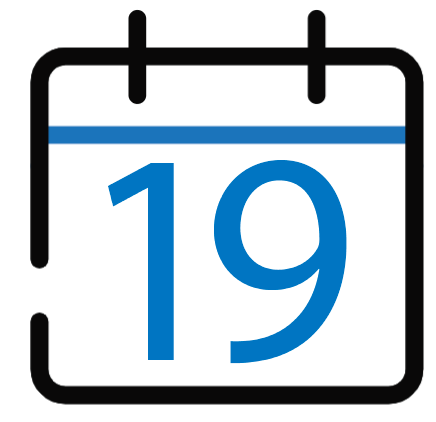
IWCR INSIDERS: WINTER 2023 EDITION
We all know the drill. Every year, January arrives and couch potatoes become weekend warriors. Suddenly gyms are full, and veggies magically appear in your fridge. We choose #intention words, share goals with friends and family, and plan a bright new year. For many, the beginning of a New Year brings the desire to set new goals and resolve to change something important in their life.
When people begin a new goal, research shows they start on specific types of dates. Researchers call these dates Temporal Landmarks. ^1
These Temporal Landmarks are moments when we find it easier to separate our “old” self from our aspirational “new” or future self. Unlike some personal temporal landmarks — such as a birthday, a new semester, or beginning a new job — a New Year produces a universal beginning for everyone at exactly the same time. Welcome to the phenomenon of New Year’s Resolutions. Americans make a lot of them — about 40% of Americans currently make some sort of New Year’s resolution. ^2
 While intentions and hopes are high on January 1st — in fact 52% of resolvers in one study were confident of success at the beginning — we know that by February, if not sooner, most will have returned to their 2022 behaviors, and the cycle will repeat the following year. ^3
While intentions and hopes are high on January 1st — in fact 52% of resolvers in one study were confident of success at the beginning — we know that by February, if not sooner, most will have returned to their 2022 behaviors, and the cycle will repeat the following year. ^3
January 19 is the day most people
have quit their resolutions.
Data on resolutions vary, but there are general trends. The most common New Year's resolutions among US respondents are health-related, such as exercising more and eating healthier. By comparison, other countries tend to focus on mental health and relationships. For example, in Canada, the most popular resolution is to save more money and reduce debt. In Japan, people often resolve to become better versions of themselves by learning a new skill or taking up a hobby. In China, the Lunar New Year is more significant, and the focus is more on rituals to bring luck in the new year.
The top 5 New Year's resolutions among U.S. respondents ^4
52%
Exercise More
50%
Eat Healthier
40%
Lose Weight
39%
Save More
37%
Family Time
Common reasons for failure on New Year's Resolutions include: 35% admitted they had unrealistic goals, 33% did not keep track of their progress, and 23% forgot about the goals entirely. Making too many resolutions — taking on too much — is also a common pitfall. ^5
Without a plan, a resolution is just a wish. We know that people who get specific, and set concrete milestones fare better. In one study, those who set specific milestones did 22% better. ^6
Those who succeed are likely to have turned their resolution into concrete steps, and to have continued those actions until they became part of a new lifestyle or pattern. Research also shows that aspirational (“approach”) goals such as adding in positive behavior (eat more veggies, for example) produce better results than negative (“avoid’) goals such as resolving to never eat pizza again. ^7
Some experts recommend 5 factors that make a goal more concrete. Consider creating goals that are:

Specific
“Walk 4 miles a day” vs “Get healthier”

Measurable
Track progress metrics, such as steps, pounds, or pages

Achievable
Is it within the realm of possibility?

Realistic
Don’t bite off more than you can chew.

Time-Bound
Set interim weekly goals, and set aside time to pursue these goals.
Research has shown habit formation taking anywhere from 18 to 254 days — depending on the habit you are trying to change or create! The popular idea that it only takes 21 days is inaccurate, according to research conducted in 2009. The median length of time was found to be 66 days, assuming the new behavior is performed daily. Stopping and starting extends that timeframe, or can even result in failure. Furthermore, the timeframe can vary depending on the intended behavior and how supportive your environment is. Charles Duhigg, author of The Power of Habit, states the timeframe is influenced by your consistency in taking action.
Some questions to consider if you are attempting habit change include: Is this a new habit, or are you trying to “overwrite” an old, ingrained habit? How supportive is your environment? Are there cues or “hooks” to hang your new habit on? Does it fit smoothly into your life, or are additional changes necessary? Is your habit intrinsically enjoyable, or do you need extra reinforcement? All these factors can shorten or extend the time it takes.
Research shows that, in some respects, opportunities for resolutions do appear many times a year. Temporal Landmarks include both special personal occasions such as birthdays, returning from a vacation, or a new job, as well as calendar events such as a holiday, the beginning of a new week or month. Each of these dates is a “fresh start” opportunity to begin a new cycle.
Do you make an annual New Year’s Resolution? A positive view is that it provides a great opportunity to pause and reflect, to better redirect our lives in a positive direction. On the other hand, failing at a goal can feel like more than a waste of time. It may make people feel less capable — even hopeless when it comes to goals like weight loss, eating healthier or moving more.
We are curious: How do you feel about Resolutions? What makes a good New Year’s goal for you? Do you set large aspirational goals or smaller ones? Do you concentrate on the outcome itself or the steps to achieve the goal? Do you ask friends or professionals for support?
There are as many answers to these questions as there are people, and many ways to achieve success. Just like so many things we study in the IWCR, the answers may be very individual. Help us understand what works for you and what might work for others. We want to know what you think and what you do!
Changing anything can be challenging — how do you stay motivated? Join us in your private Facebook group and add to the discussion. What did you do to start 2023? Did you set a goal, make a resolution? Was it big, little smart? Is it still working?
Join us in your private IWCR Insiders Facebook group to discuss this article and learn from your fellow IWCR Insiders.
Do you have more to share? We want to invite you to engage more deeply with your fellow Citizen Scientists. In future issues, we will be profiling interesting people from the sciences and hopefully, from this study! We want to feature your stories, profile your opinions, experiences, and ideas. Whether you have a great success to celebrate, or struggles we can all learn from, we want to know you better.
Your story could be part of our next blog or newsletter! Do you have thoughts about what it was like to participate in the IWCR Questionnaires? Has something inspired you lately? What else do you want us to know?
Feel free to comment on this post, or write to study@internationalweightcontrolregistry.org. Your Citizen Science experiences may be featured right here — and ONLY with your permission.
Join our IWCR Insiders Facebook group to stay part of the conversation, meet your fellow Citizen Scientists of the IWCR, post and see amazing pictures of your favorite foods, participate in interesting polls, and help grow this vital global community. If you've completed the Registry, you can join here: https://www.facebook.com/groups/iwcrinsiders/
We look forward to staying in touch with you on this important lifelong journey.